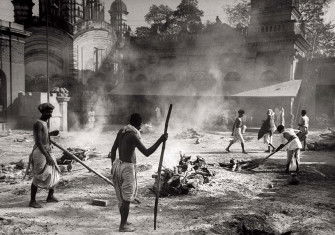Half a Life
The remarkable adolescence of the Nobel Prize winner Amartya Sen.

This memoir by one of the world’s foremost philosopher-economists promises enormous intellectual delights, until one sadly discovers that it trails off in 1964, well before his receiving the Nobel Prize or his reign as Master of Trinity College, Cambridge. What it does offer is a charming, lively account of Sen’s remarkable adolescence at the philosopher-poet Rabindranath Tagore’s inspirational school at Shantiniketan near Calcutta in Bengal. Sen’s education there laid the foundations for his creative approach to development economics.
Though never a communist, Sen grew up deeply impressed by Marx’s attention to social needs and inequities, but also by his respect for the liberty of thought, which Marxist orthodoxy dismisses. Not a capitalist, Sen is equally respectful of the ideas of Adam Smith, including his less publicised attention to tackling racism, slavery and other obstacles to free markets. The result was Sen’s remarkably balanced approach to famine and development, which won him the Nobel Prize in 1998.
Sen’s memoir transports us from the simple delights of life with his grandparents at Shantiniketan to the upper reaches of economic theory at Cambridge, to which he travelled via Presidency College, Calcutta. He reminds us of Tagore’s dislike of nationalism, including India’s version home-spun by Gandhi. Tagore publicly condemned Gandhi’s characterisation of the Bihar earthquake of 1934 as an Act of God, punishing India for the sin of untouchability. Though Sen respects Gandhi’s sincerity, he shares Tagore’s dislike for such religious obscurantism.
His childhood coincided with the Bengal famine of 1943, which he witnessed first-hand, though his family were fortunate not to suffer its effects. Unlike many nationalists, Sen avoids blaming the famine on deliberate British policy, least of all on the distant Winston Churchill. Instead, he explains it as the result of a wartime boom in demand, soaring food prices, local mismanagement and a lack of transparency.
Personal experience of famine did much to inform his later adventures with social choice theory at Cambridge in the 1950s and his stimulating debates there with neoclassicists such as Peter Bauer and Marxists including Maurice Dobb. As a member of the legendary Cambridge Apostles, Sen enjoyed tea and ideas at their meetings in E.M. Forster’s rooms.
Given his own educational background and intellectual milieu, Sen is respectful of the enormously progressive impact on India of British liberal, modernising ideas. But he is surprisingly over-optimistic in asserting that India, like Japan, would have acquired such ideas for itself without British rule. This counterfactual begs the question of how a vast Indian subcontinent, riven by regional warlordism, could have united by itself to acquire anything like the homogeneous nationhood of Meiji Japan.
Indeed, Sen’s political judgements often seem less well-founded than his economic wisdom. He welcomes independent India’s democracy, but ignores its evolution from British-introduced representative institutions, dating as far back as the 1870s. He reviles the Hindu chauvinism of India’s present rulers, but fails to see its roots in the majoritarian Hindu domination that led Jinnah’s Muslim League to demand partition in the 1940s. These are themes on which Sen touched in his previous book, The Argumentative Indian (2005), and one must hope he will explore their impact in an account of the second half of his very distinguished life.
Home in the World: A Memoir
Amartya Sen
Allen Lane 480pp £25
Buy from bookshop.org (affiliate link)
Zareer Masani is an author and historian.





